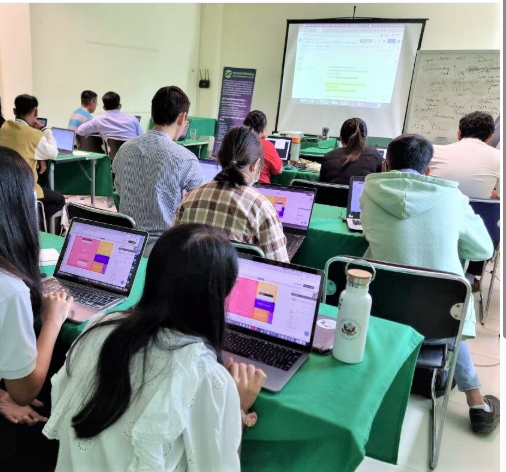Online learning platforms have evolved far beyond just video lessons and digital textbooks. Many now include study communities—interactive spaces where students can connect, collaborate, and share knowledge. These virtual communities help learners stay motivated, ask questions, and get peer support, turning solo study into a more engaging, social experience. Below are some of the best online learning platforms that feature active study communities.
1. Khan Academy
Khan Academy offers a wide variety of free academic lessons across subjects like math, science, and economics. While it doesn’t have traditional forums, its comment sections beneath videos allow learners to ask questions and get answers from peers and Khan Academy moderators. This creates a basic but effective peer support network.
2. Coursera
Coursera partners with top universities and organizations to offer online courses. Each course includes discussion forums where students can post questions, discuss ideas, and collaborate on assignments. Learners can interact with peers from around the world, enhancing global perspectives and collaboration.
3. edX
edX also offers university-level courses with built-in discussion boards and peer assessment tools. These forums encourage active participation, idea sharing, and academic feedback, making it ideal for students who want deeper interaction during their online studies.
4. FutureLearn
FutureLearn encourages social learning through threaded discussions embedded in every step of the course. These discussions are integral to the learning process and allow students to reflect, debate, and respond to peers and educators in a structured, accessible format.
5. Study.com
Study.com features interactive video lessons and quizzes, along with a student Q&A forum where users can post questions and receive answers from experts and peers. Its premium subscription includes access to a help community where students can seek clarification and share learning tips.
6. Brainly
Brainly is built entirely around community-powered learning. Students ask homework questions and receive responses from other students or verified educators. The upvote system promotes high-quality answers, and users can follow topics or join study groups.
7. Reddit (r/learnprogramming, r/AskAcademia, r/HomeworkHelp)
While not a formal learning platform, Reddit offers vibrant, self-moderated study communities. Subreddits like r/learnmath, r/learnprogramming, and r/AskAcademia provide valuable crowdsourced answers, advice, and study resources.
8. Discord Study Servers
Students use Discord to create and join study servers—digital hangouts organized by subject, grade level, or exam type. Servers often include channels for live chat, video sessions, file sharing, and Q&A. Many are open to the public and foster strong peer learning environments.
9. Piazza
Piazza is a Q&A platform used in schools and online courses that allows students to post and answer questions collaboratively. Instructors often join in to clarify answers, and posts can be anonymous to encourage participation. It’s commonly used in college-level STEM courses.
10. Brilliant.org
Brilliant.org is known for its problem-solving-based approach to learning math and science. Each course includes community discussions where students can comment on problems, share strategies, and ask for help. The community often includes high-level learners and professionals, encouraging in-depth academic conversations.
Conclusion
Online learning is no longer a solitary experience. By choosing platforms with active and supportive study communities, students can benefit from shared knowledge, social interaction, and collaborative growth. Whether through structured forums, live chats, or peer-driven Q&A, these learning spaces help create a more engaging, connected educational journey for learners around the world.













